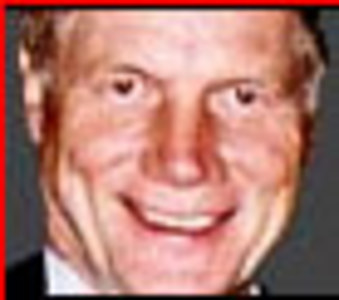Most every time a political party suffers a stiff setback, someone will draw out the dagger and declare that it is moribund.
The astute separatist leader Gilles Duceppe was fielding questions of that nature after the bad day his flock incurred in the Quebec election. "We've been hearing that kind of talk since August of 1976," the Bloc Québécois Leader responded. "That was when Pierre Trudeau declared separatism is dead." As he noted, only a few months later, the Parti Québécois won a majority in the province.
He could have used several other examples to drive home the point that anyone popping champagne corks at the sight of the PQ's third-place finish is ill-advised.
In the 1980 referendum, the separatists were repudiated by a vote of 60 per cent to 40 per cent. The following year, Quebeckers returned René Lévesque's Péquistes to office with another majority.
Heading into the 1995 referendum, the federal side was cruising to the point where Jean Chrétien could look at the numbers and head off to the golf course, confident that another 1980-styled victory was at hand. Then the sovereigntists switched leaders - which they might do again - and Lucien Bouchard rolled back the stone. Everyone knows how close they came to winning that vote.
This is a movement that has fed off adversity. In response to the failed Meech Lake accord, the sovereigntists undertook expansion, forming a federal party, the Bloc Québécois. Overnight, it became Canada's Official Opposition.
The Bloc was supposed to be a short-term phenomenon. It, too, has had its death warrant written a few times - and with the news that Michel Gauthier, its high-quality MP, won't be running again, there will be more of them. But the Bloc is still likely to remain the dominant federal party in Quebec.
Despite Monday's apparent drubbing, it should be remembered that the Péquistes, who lost only nine of their seats, came within a two- or three-point swing of winning the election. That was with an inexperienced leader, and it was in the face of much federal largesse bestowed on the province. The second-place showing of Mario Dumont's Action Démocratique du Québec was obviously a punishing rebuke. But there is a scenario in which the ADQ's rise could work favourably for the Péquistes.
It is worth recalling that, when Brian Mulroney was in office in the 1980s, he contemplated the idea of creating a provincial Conservative party in Quebec. He abandoned the idea, a principal reason being that it would create two federalist options for Quebeckers. They would divide the vote, creating a wonderful advantage for the PQ.
If, in the Quebec voter's eyes, the ADQ becomes another federalist option - a cousin of sorts to Stephen Harper's Conservatives - the scenario that Mr. Mulroney feared could come to pass. In this past election, Mr. Dumont had the best of both worlds. He was seen as half one, half the other. But, with his enhanced stature, he won't be able to sustain that kind of ambiguity.
Strangely, the best thing that could happen for Canadian unity would be for Mr. Dumont to steer away from federalist affiliation and move closer to the separatist camp. In that way, vote-splitting would occur among the sovereigntists.
Meantime, Mr. Harper has to tread carefully. He can justifiably take some credit for the PQ's poor showing on Monday. While the gifts he bestowed on the province didn't trigger the majority victory for Jean Charest that he intended, his granting nation status to the Québécois served to undermine the secessionists.
But such is the new dynamic in Quebec that Mr. Harper cannot bank with assuredness on any outcome. Given the symmetry between his party and the ascendant ADQ, common wisdom suggests he can ride the momentum and score big in the province in the next federal campaign. But Quebeckers often tend to go one way, then the other. Having given the secessionists a beating provincially, they are now just as likely to turn around and deliver a big vote to Mr. Duceppe, a decidedly more popular leader than the PQ's André Boisclair, in the federal campaign.
It's dangerous for anyone - witness how several provinces tend to vote one way federally and the other way provincially - to draw direct lines from one jurisdiction to another. Non sequiturs, especially in Quebec, abound.
lmartin@globeandmail.com





























Laissez un commentaire Votre adresse courriel ne sera pas publiée.
Veuillez vous connecter afin de laisser un commentaire.
Aucun commentaire trouvé